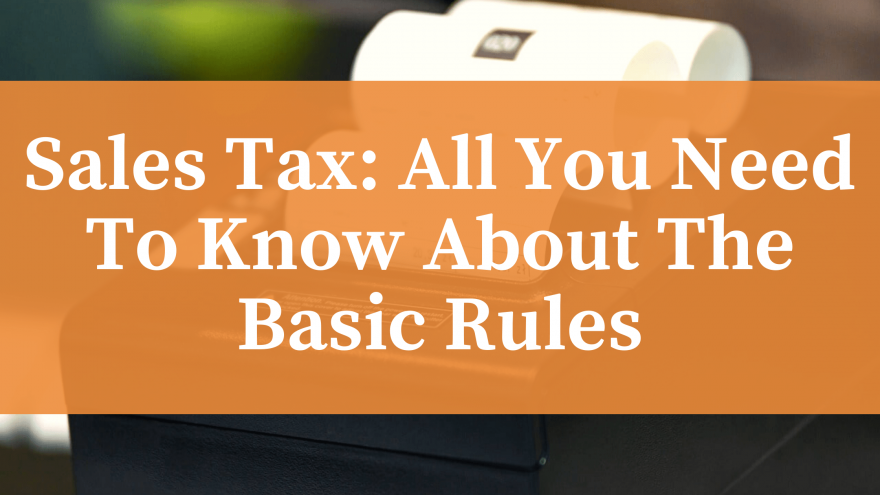It’s now an easy way to start with an online store idea, make a business plan, and start selling products. Create an eCommerce website with people that can boost your sales. An eCommerce website that follows popular eCommerce practices turns out to be the best approach. Sometimes the strategies turn out to be amazingly time-consuming and rather challenging. It’s worth understanding the eCommerce tax rules and regulations.
Ecommerce Tax Rules Explained
Here, you will get an idea regarding the eCommerce sales taxes rules as well as abiding by them.
Tax on Ecommerce
Pay attention to taxes, and the condition is that every country and state has knowledge regarding the different standards and rules whenever it comes to setting taxes. Check the target market to understand what the taxes in the country are. Also, there is a need for understanding regarding what you are selling. Different taxes for different countries are there.
Besides, it’s worth noting that the rates differ according to the different products or services. Selling non-essential goods in Britain comes with the involvement of the VAT tax. If you want to sell clothes in New York, then you will have to pay the tax.
Extra Taxes
Some countries, however, levy extra taxes for products. California updates suggest that any item you decide to sell and come in a plastic bottle costs an extra recycling tax. Always stay informed regarding the specific products or services and the local taxes of the area you are selling. What is the best decision is to talk to a professional for taxes or also regarding the local authority.
This understanding is needed to note so that you have an understanding of what can affect business. It can also help with the determination regarding future eCommerce strategies. Always stay informed regarding changes in taxes and regulations. The eCommerce professionals should always stay in touch with the local tax authority throughout the entire time.
Rules Compliance related to eCommerce Sales Tax and How to Deal with It
Ecommerce professionals spend hours finding the best approach to work with eCommerce sales tax compliance. Always gets an idea regarding the eCommerce tax rules and regulations. Staying informed regarding the eCommerce sales tax rules is a bit tedious for a seller. Sales tax governed by numerous laws keeps on changing from time to time. Learn how to collect, file and report the sales tax.
Sales Tax: A Necessary
Some states allow local areas to get access to additional sales tax. It’s worth noting that these taxes are levied for a reason. Pay for budget items like public safety, roads, or schools. The term used for them is ‘consumption tax.’ The requirement is when finalizing a purchase from an eCommerce store.
The term that is associated with it is ‘pass-through tax.’ Merchant charges a tax to the buyer, and so in that case, they don’t get the opportunity to keep that tax. Limitations are there regarding how far they go with this, and the framework of the Constitution lets all such limitations.
An eCommerce sales tax rules vary depending on the state, such as:
- Taxable and non-taxable products
- sales tax charged amount
- Frequency for filing sale tax returns
- Due dates for the return
Method to Handle the Sales Tax incorporation with Ecommerce Tax Rules
It’s essential to note the steps for understanding the method handle the Sales Tax in a corporation with Ecommerce Tax Rules.
1. Identification of the economic nexus states
Nexus means ‘to tie’ and refers to how to tie the business to your state. United States eCommerce retailers have a sales tax nexus and differ in location, affiliates, personnel, inventory, sales, etc.
2. Verification of projects subject to a sale tax
Not every project turns out to be subject to an eCommerce sales tax. United States laws suggest that most of the personal and tangible property is relevant to a sale tax. Some items, however, turn out to be more of a necessity. Grocery items, clothing, nonprescription medicine, prescription medicine, religious books, textbooks, etc., fall under this category.
3. Registering for a sales tax permit
Determining the nexus leads you to the way of registering for a tax permit. The condition is completely dependent on the state, specifically on the State Department of Revenue.
4. Setting up a sale tax collection
Valid tax permits and information about the sale tax take you to the step of figuring out the pricing. You will have to get knowledge regarding where to collect your taxes. The conditions, however, are dependent on the marketplace or shopping cart.
5. Reporting amount
Keep track of the eCommerce tax rules that can also lead to the way of reporting the amount. Get the idea based on the city, county, or district.
6. Filing the sale tax return
Consider returns you can have with the state. There will be scope for filing the tax online. However, there is often a deadline for this, too.
Final Words
Getting informed regarding eCommerce tax rules before starting with your online business can save money, time, and energy. The eCommerce sales tax varies from one country to another, but it is necessary to find them out. With that, you can get the scope for avoiding all the issues that add up costs.
